
U-M engineers develop professional competencies while practicing engineering skills
Experiential learning framework customizes education to help engineering students thrive by rounding out their skill sets.

Experiential learning framework customizes education to help engineering students thrive by rounding out their skill sets.
Good engineers have excellent technical skills, but great engineers also use a host of professional skills including strong communication, teamwork, social and cultural awareness, leadership and creativity. An experiential learning framework developed at Michigan Engineering gives students the opportunity to practice technical skills while developing those that will enable them to make a positive difference in teams, organizations and society.
That mission coalesces with the college’s strategic vision to serve the common good and its people-first framework for engineering, which layers excellent fundamentals with the ability to converge disciplines and apply equity-centered values.
“We’re helping students build the skills they need to thrive in diverse teams. Our framework for experiential learning articulates core competencies like empathy and the cultural awareness engineers should have upon graduation,” said Alec D. Gallimore, Robert J. Vlasic Dean of Engineering at the University of Michigan. “This educational focus does not replace technical rigor but complements it.”
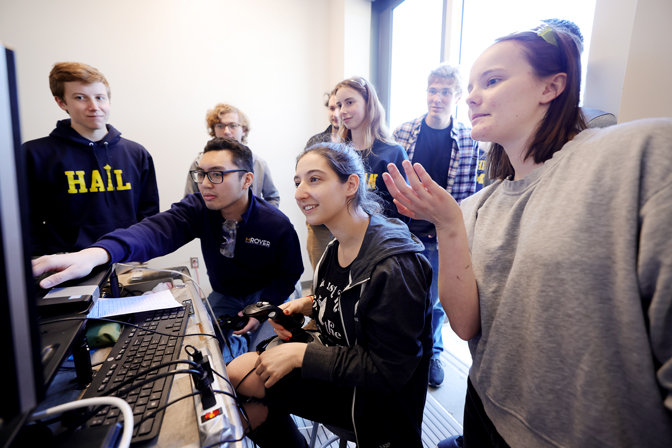
In the realm of engineering education, experiential learning is not a new concept. Many programs and opportunities already exist at universities around the globe. However, reaching large and diverse student populations can be challenging, and opportunities for reflection are often lacking.
To overcome this, Michigan Engineering designed its experiential learning framework, to support students throughout their entire academic career. It includes a set of professional competencies that students are encouraged to learn through a wide range of opportunities paired with a personalized experience that incorporates reflection. These align with competencies and skills highlighted by national engineering organizations and employers, including communication, creativity, cultural awareness, ethics, leadership, risk management, systems thinking and teamwork.
“Ultimately, we believe this approach will help all of our students gain skills that are critical to advancing in their future careers,” said Kevin Pipe, associate dean for undergraduate education, whose office launched the framework in fall 2021.
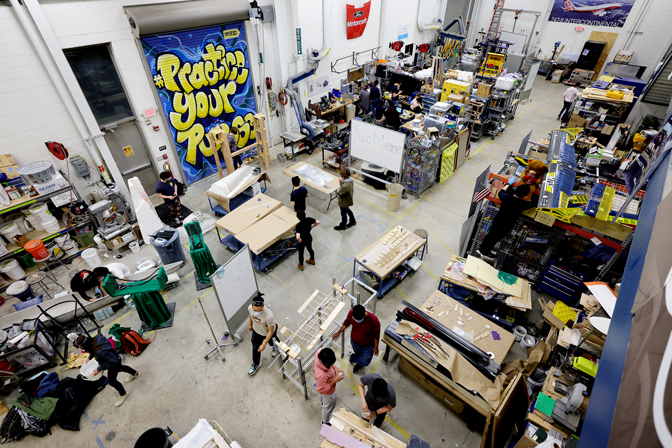
Engineering 110 is generally students’ first introduction to the college’s experiential learning framework. Here, students learn about engineering majors offered at Michigan, clubs and organizations they’re able to join and the types of career paths they can pursue based on their interests and goals.
The class also introduces students to Spire, an online platform developed in partnership with U-M’s Center for Academic Innovation, allowing them to prioritize and identify Immersed opportunities. Students are encouraged to select at least three core competencies, which will be developed in four phases of experiential learning: exploration, engagement, reflection and communication. Throughout their academic career, students receive prompts from Spire that are designed to help them meet their competencies.
“Immersed programs showed me the areas of engineering I am passionate about. Being part of MASA, a Wilson Center team, taught me how to solve complex problems by collaborating with the team and being creative to overcome challenges,” said José Luiz Vargas de Mendonça, a senior in aerospace engineering and computer engineering.
“The theory learned in the classroom is complemented by these hands-on opportunities, making it clear how engineering can positively impact the world,” he added.
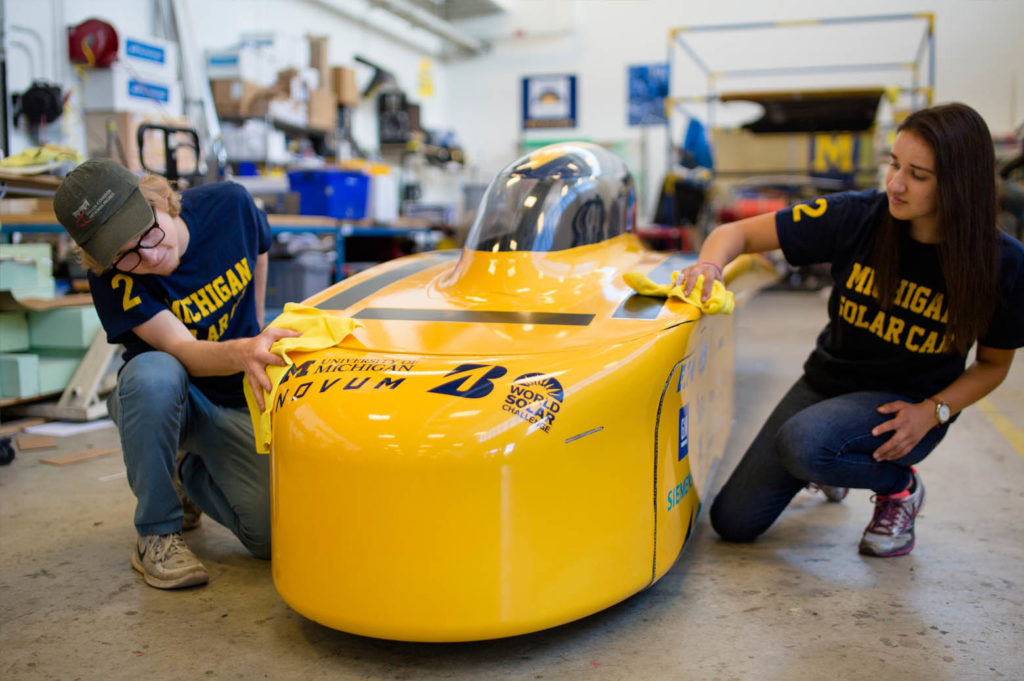
For example, let’s say a student chooses communication, creativity and teamwork as their core competencies. This person starts in the exploration phase by connecting with an advisor or attending a mass meeting to get more information on resources available to build these competencies. During the engagement phase, the student may opt to study abroad in Costa Rica or participate in a multidisciplinary collaboration to design and build a solar-powered vehicle with U-M’s Solar Car team.
In the reflection phase, the student synthesizes what they learned from their experiences and how it specifically applies to their future as an engineer. In the final phase, which likely takes place during their senior year, the student is able to communicate the impact of their experiences to employers, graduate schools and others.
“With collaborative experiential learning opportunities such as study abroad, participating in design competition teams, or research with faculty members, we can enhance our students’ professional skills—making them more effective communicators and leaders,” said John Callewaert, director of strategic projects at the Office of the Associate Dean for Undergraduate Education.
Among the nearly 1,000 students who used Spire this past academic school year, communication was the competency that students most frequently chose as their most important area for growth and most important to their careers. It’s also high on employers’ lists. While Engineering.com ranks technical expertise as the top skill that employers look for in engineering graduates, soft skills including communication and interpersonal skills, problem solving and enthusiasm round out the top five.
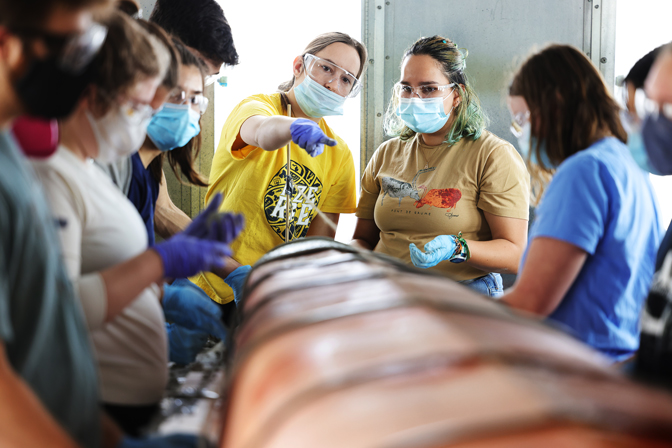
“My enriching experiences in the Immersed programs have enabled me to develop valuable cross-cultural and leadership competencies that I would not have gained otherwise,” said Sadie Cox, a recent graduate in industrial and operations engineering (’22), who participated in International Programs in Engineering.
“IPE has equipped me with a new perspective to understand and combat the problems of the world and a heightened awareness of the diversity that makes U-M so strong,” she added.
Another important goal of the experiential learning framework is to ensure students are able to articulate their experiences to employers so they rise to the top once they hit the job market.
“Employers want to assess your capacity to lead. Can you communicate effectively? Can you work with people of different backgrounds? Can you creatively and wisely implement new knowledge?” said Pipe. “Students sometimes have a hard time developing an intentional plan to build such competencies through their experiences, as well as afterwards conveying this intentionality and how their competencies were improved. This is what we’re emphasizing with this framework.”
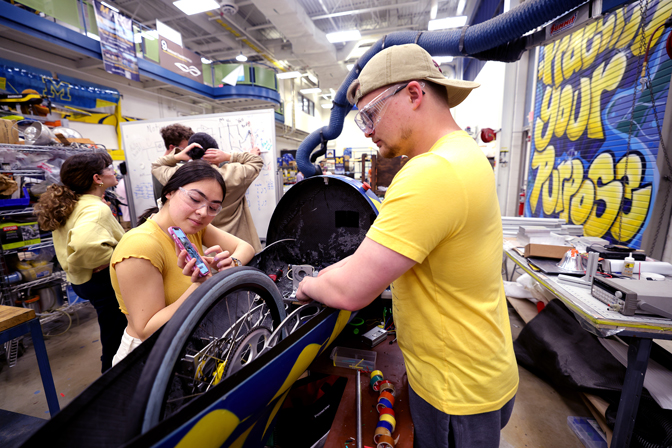
Gallimore is also the Richard F. and Eleanor A. Towner Professor of Engineering, an Arthur F. Thurnau Professor and a professor of aerospace engineering. Pipe is also a professor of mechanical engineering, electrical engineering and applied physics.